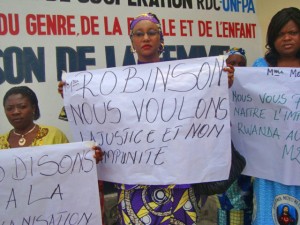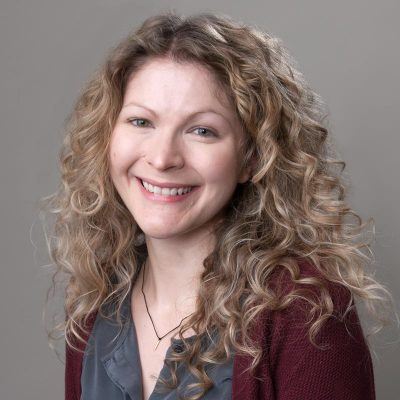
On September 21, the International Day of Peace, many of AJWS’s partners around the world were pushing for peace, justice and reconciliation in their communities and countries. In the Democratic Republic of the Congo (DRC), where fighting has escalated due to a standoff between armed groups, civilians have increasingly become the targets of violence, particularly women and children. AJWS’s grantees and allies in DRC are particularly working to address sexual violence in North Kivu province, the epicenter of the recent fighting.
Last spring, the United Nations appointed Mary Robinson as the special envoy for the Great Lakes region of Africa, which includes DRC. She expressed her hopes to address the issues faced by civilians during the conflict in the eastern DRC and to find a lasting, peaceful end to the conflict.
The women’s groups that AJWS supports in North Kivu have issued a joint statement to Mary Robinson and the international humanitarian community, asking for the voices of Congolese women to be heard during peace negotiations. Read on for a brief summary of the statement, which Nelly Godelive Mbangu, executive secretary of Women from the North Kivu Province, sent to AJWS.
The current situation in North Kivu province is dire.
There remains a large military presence in the cities and villages around the province. The M23 continues to commit acts of violence against civilians; the majority are women and children. The M23 have dropped bombs in villages that border Rwanda near Goma, leaving many civilian casualties in their path. Acts of sexual and gender-based violence continue to be committed by members of armed groups, often occurring in the fields, on roads and in villages. The recent escalation in fighting has continued day to day and has led to massive displacement of civilians. Poverty and hunger continue to rise.
Rwandan backed forces continue to be present in North Kivu province. Perpetrators of crimes against humanity go unpunished. Some armed groups have established parallel governments controlling and taxing the populations they occupy. Kidnappings, assassinations, executions, torture and arrests have been made against men and women. Illegal exploitation of natural resources by armed groups continues and is the main method for financing rebellions.
In light of International Day of Peace, the women of North Kivu are calling for stronger efforts to be made by UN Special Envoy Mary Robinson to address issues faced by civilians due to the ongoing violence in eastern DRC:
-
Respect the peace accord signed in Addis Ababa, as well as the UN Security Council resolution 2098—which gave the UN peacekeeping mission a mandate to protect civilians and gave the UN special envoy a special mandate to focus on women’s empowerment—and resolution 1325, which stipulated women’s full participation in conflict resolution and peace building.
-
Promote sustainable and participatory peace and justice in accordance with the UN mandates and the peace accords.
-
Put an end to the unproductive peace negotiations in Kampala and continue to support the intervention brigade.
-
Promote the return of foreign troops to their native countries, particularly Rwanda and Uganda, and encourage peace dialogues with Rwanda and Uganda.
-
Encourage the Rwandan government to address the issues arising from refugees returning to Rwanda after migrating to DRC after the Rwandan genocide.
-
Propose the creation of an international reparation fund for Congolese women to help them rebuild their lives in the wake of mass atrocities committed by armed groups.
-
Encourage the international community to finance rehabilitation and infrastructure projects in North Kivu, such as schools and roads, so that civilians can begin to move forward.
_____________
Eastern DRC has been engulfed by conflict since 1994, when Hutu militias fled across the border from Rwanda—where they had just slaughtered Tutsis and moderate Hutus in one of the most organized genocides of the 20th century.
The statement by Women from the North Kivu Province reflects the opinions of its authors; it does not necessarily represent the policies or perspectives of American Jewish World Service. The content was summarized and translated from French to English by Amy Bisno, program associate for AJWS.
AJWS’s work in countries and communities changes over time, responding to the evolving needs of partner organizations and the people they serve. To learn where AJWS is supporting activists and social justice movements today, please see Where We Work.

